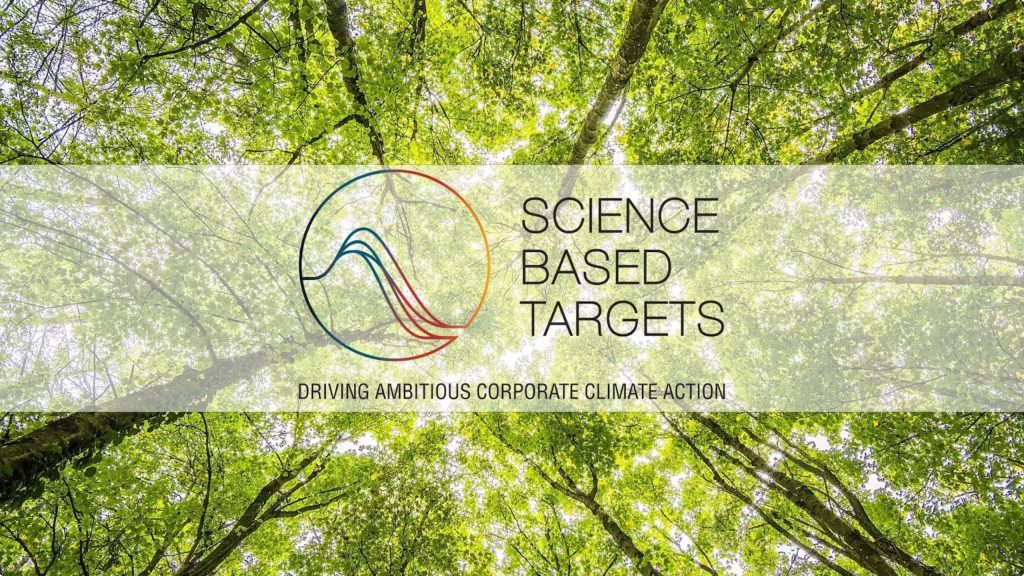• The Science Based Targets initiative (SBTi) released its second draft of the Corporate Net-Zero Standard V2 for public consultation, open from November 6 to December 8.
• The revision aims to strengthen scientific credibility while making climate action frameworks more accessible and adaptable across regions and sectors.
• The draft introduces new recognition mechanisms for companies taking voluntary action on ongoing emissions and clearer scope-specific requirements for decarbonization.
SBTi Moves to Refine Corporate Climate Framework
The Science Based Targets initiative (SBTi) has released the second draft of its Corporate Net-Zero Standard Version 2, opening a new round of consultation to refine the global benchmark for corporate climate action. The updated draft reflects extensive feedback from businesses, scientists, and civil society gathered during the first consultation earlier this year.
The proposed revisions aim to make the Standard more practical and inclusive, while maintaining its scientific integrity. As global climate policy tightens and investors scrutinize corporate decarbonization claims, the SBTi’s Net-Zero Standard remains the leading framework for validating corporate targets aligned with the Paris Agreement’s 1.5°C trajectory.
Streamlined Framework for Broader Adoption
The revised draft simplifies structure and language to help more companies — especially those in emerging markets — understand and apply science-based targets effectively. The SBTi said the update seeks to make climate action “more accessible and actionable,” allowing companies to translate science-based ambition into credible results.
Central to the revision is a “scope-specific” approach, distinguishing between Scope 1, 2, and 3 emissions, and recognizing the operational realities of different sectors. The framework preserves the scientific rigor of its predecessor but gives businesses greater flexibility in prioritizing emissions sources where they can drive the most significant reductions.
The new draft also highlights the importance of transparency, requiring companies to publicly disclose progress against targets and maintain alignment with long-term net-zero ambitions.
Recognition for Early Action
A notable addition is a recognition mechanism that rewards companies taking early, voluntary action to address residual emissions before reaching their official target milestones. The SBTi said this aims to encourage continuous engagement and accountability throughout the decarbonization process.
“The focus remains on direct decarbonization,” the initiative stated, “but companies demonstrating responsibility for ongoing emissions will now have clearer pathways to recognition.”
This feature is expected to resonate with firms under growing investor and regulatory pressure to show measurable near-term progress rather than distant commitments.
Strengthening Corporate Transition Plans
The updated draft also reinforces expectations around transition planning. Companies validated under the framework will be required to publish detailed plans mapping near-term operational and value-chain actions to long-term net-zero goals. These transition plans will serve as both strategic tools for management and disclosure instruments for stakeholders monitoring climate risk and performance.
RELATED ARTICLE: SBTi Publishes Draft Power Sector Net-Zero Framework
David Kennedy, Chief Executive Officer of SBTi, emphasized the role of business in driving the global net-zero transition. “Taking science-based action both reduces emissions and manages transition risks, maintaining competitiveness and offering growth opportunities in a carbon-constrained world,” he said. “By contributing to our public consultation, stakeholders can help shape the future of corporate climate action.”


Balancing Rigor and Usability
Alberto Carrillo Pineda, Chief Technical Officer at SBTi, noted that the latest draft builds directly on the feedback from hundreds of companies and experts. “With this update, we are taking a further step toward making science-based climate action more inclusive, actionable, and adaptable for businesses everywhere,” he said. “Further input is crucial to ensure the final Standard is practical, credible, and robust.”


The consultation process, open through December 8, invites feedback from corporations, financial institutions, policymakers, and sustainability experts. The SBTi said the final version will reflect both scientific consensus and on-the-ground corporate experience — a balance it views as essential to scaling global decarbonization.
Global Implications for Business and Finance
For executives and investors, the Standard’s evolution will shape how corporate climate strategies are set, verified, and compared worldwide. As ESG regulation tightens — particularly in the EU, U.S., and Asia — alignment with SBTi validation is increasingly viewed as a baseline for credible corporate climate disclosure.
The updated Corporate Net-Zero Standard V2 could therefore influence capital allocation, transition risk assessment, and portfolio alignment across the global financial system. By emphasizing transparency, flexibility, and early action, the SBTi aims to accelerate adoption without diluting scientific rigor.
The organization expects to finalize and publish the updated Standard in 2025, following analysis of the consultation feedback.
Follow ESG News on LinkedIn

